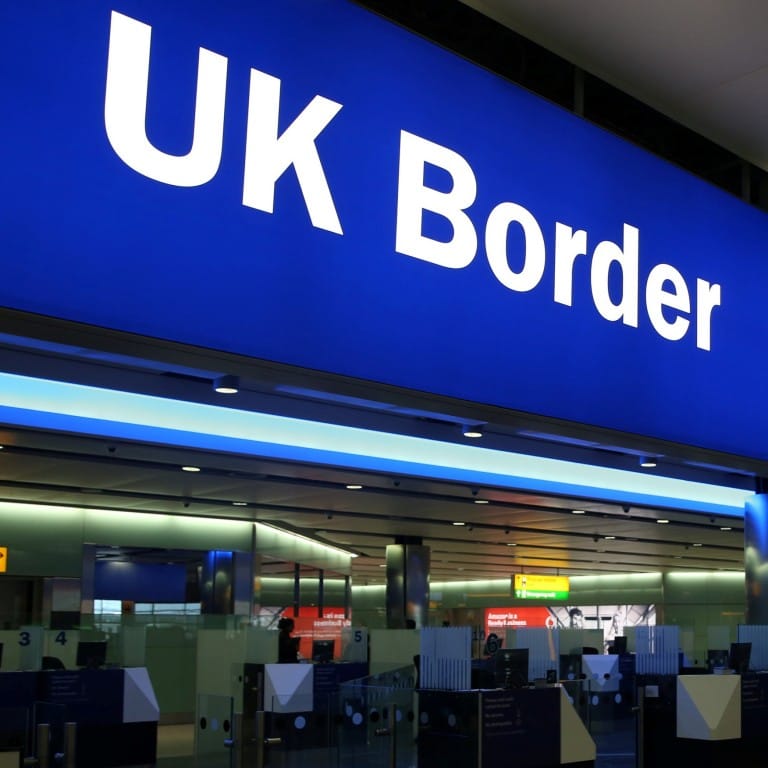Government unveils new points based immigration system

By Ryan Prosser, BA Chinese (Modern and Classical)
The Government has set out its stall for immigration beyond Brexit. The proposals, which will come into effect at the end of the Brexit transition period, will see EU citizens who previously benefited from freedom of movement, treated equally with those from Non EU member states.
The new policy, as promised in the Conservative 2019 election manifesto, adopts the ‘Australian style’ points based programme, requiring all applicants to demonstrate specific skills or fulfil certain prerequisites before migrating to the UK. From January 2021, all those seeking employment in the UK will be required to show proficiency in the English language and have a firm job offer from a registered sponsor at the ‘required skill level’, in order to qualify for a work visa.
There will also be a salary threshold for all migrant workers set at £25,600, although some candidates who earn more than £20,480 may still be able to come if they can satisfy other qualifications, for example a PhD in a STEM subject, or are applying for a job in a shortage occupation as defined by the Migratory Advisory Committee (MAC).
The cap for the number of skilled workers has also been lifted, with a limited number being allowed in without a job. Students will also be covered under the new scheme and will be able to achieve enough points provided that they hold an offer from an approved educational institution, can speak English, and are able to support themselves financially for the duration of their studies.
However some things will remain unchanged. Musicians, artists, performers, and sportsmen will still be able to participate in events in the UK freely, and all visits under six months will continue to be visa-free, although ID cards will no longer be accepted from citizens of European countries.
| Characteristics | Required | Points awarded |
| Offer of job by approved sponsor | Yes | 20 |
| Job at appropriate skill level | Yes | 20 |
| Speaks English at the required level | Yes | 10 |
| Salary of £20,480 (minimum) – £23,040 | No | 0 |
| £23,040 – £25,599 | No | 10 |
| £25,600 and above | No | 20 |
| Shortage occupation | No | 20 |
| Education qualification: PhD in a subject relevant to job | No | 10 |
| Education qualification: Phd in a STEM subject relevant to job | No | 20 |
According to the government website, the new regime will allow Britain to take control of its borders, giving top priority ‘to those with the highest skills and the greatest talents’ and remove the ‘distortion’ caused by Freedom of Movement, while making the UK economy less dependent on cheap labour, asking employers and enterprises to instead invest in ‘technology and automation’.
In a series of television and radio interviews, Priti Patel, the Home Secretary, cited the 8 million ‘economically inactive’ people in Britain of working age, as a solution for businesses who will no longer be able to make use of unskilled migrants. Speaking to BBC Radio 5 Live, she added that businesses should look to work together with the government in its mission to ‘level up’ the country.
However, some industry leaders have voiced concerns over the government’s decision to not provide a route of entry for either unskilled or self employed migrants. The UK economy is currently heavily reliant on migrants in a variety of sectors, from fruit picking to caring for the elderly. The chief executive of UKhospitality, Kate Nicholls called the aim to implement this policy in just ten months ‘disastrous for the hospitality sector and the British people’,
Tom Hadley, the Director of Policy at the Recruitment and Employment Confederation criticised the government’s branding of low skilled workers, adding that ‘these jobs are vital to wellbeing and business growth’.
The Government has nonetheless indicated that it intends to continue to pursue its aim of creating a high wage economy, insisting that it is delivering on the demands of the electorate for greater restrictions on immigration.




